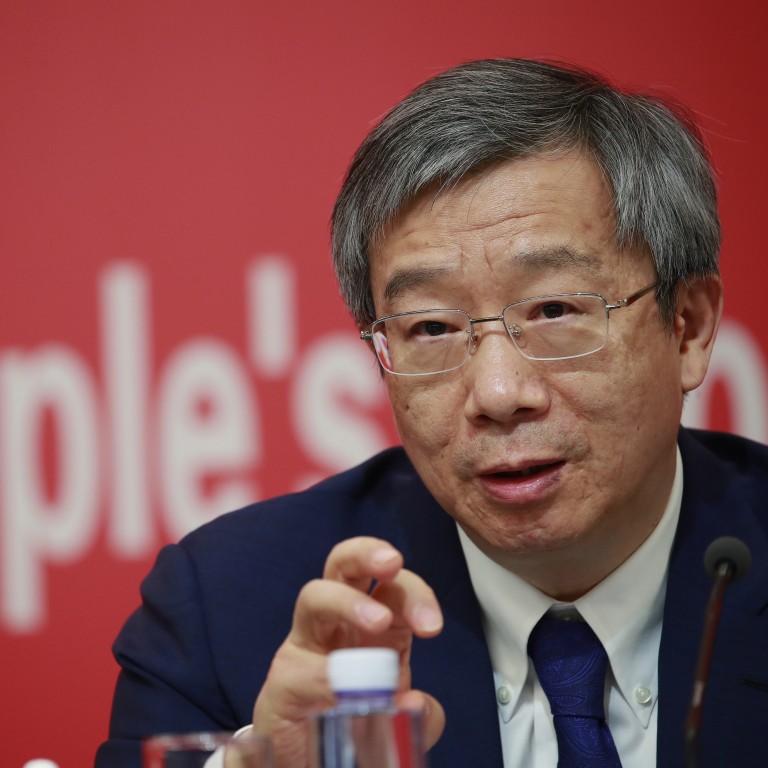
China’s yuan exchange rate ‘appropriate’ after recent weakening, central bank chief says
- Depreciation ‘driven and determined by market forces and reflects shifts in market dynamics’, says People’s Bank of China governor Yi Gang
- He was speaking at the International Monetary Fund’s annual meeting in Washington with currecny set to play a key role in any deal with the United States
The exchange rate of the Chinese yuan against the US dollar is now at an “appropriate level”, with cross-border capital flows having remained balanced since the currency weakened past seven to the dollar in early August, the head of China’s central bank said on Saturday.
“Depreciation since the beginning of August has been driven and determined by market forces and reflects shifts in market dynamics,” and the currency had fluctuated in both directions, People’s Bank of China (PBOC) governor Yi Gang said in a statement to the International Monetary Fund’s annual meeting in Washington.
US Treasury Secretary Steven Mnuchin said last week that China had made renewed commitments on transparency and that the US was willing to review its August designation of China as a currency manipulator if details of the trade deal were finalised.
In his IMF address, Yi said cross-border capital flows had been balanced recently, indicating growing acceptance by markets of exchange-rate fluctuations in China. And even though China reported its slowest quarterly economic growth on record in the second and third quarters this year, Yi said the pace of expansion had been stable, “with main economic indicators kept within an appropriate range”.
Yi also reiterated Beijing’s pledges to make the yuan’s exchange rate more market-driven and the capital account more convertible, without giving details. He said also that the country would lower the overall level of import tariffs “voluntarily”, though the statement did not tie that move to the US-China trade dispute.
As for the IMF’s decision to delay the next round of changes to its voting structure until as late as 2023, Yi said China was “deeply disappointed”, while urging the organisation to push ahead with a clear timetable.
Such changes would give China a greater say in the crisis lender’s governance, though they are subject to approval by the US, the largest shareholder. China became the third-biggest voter at the IMF in reforms ratified in 2015, up from sixth.

